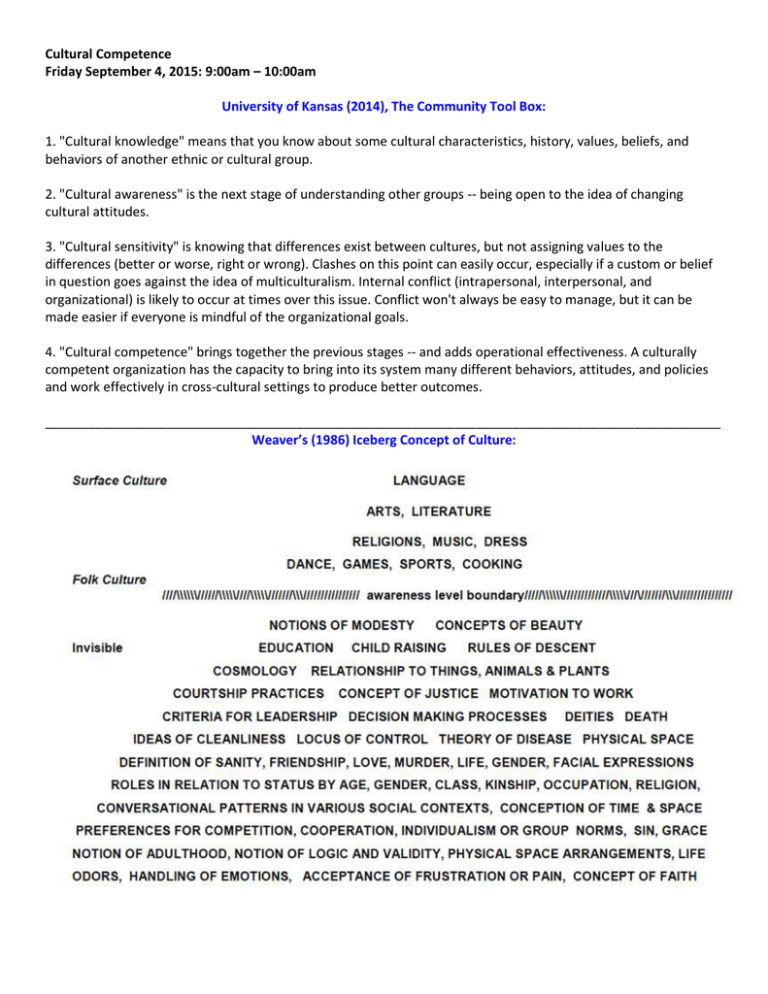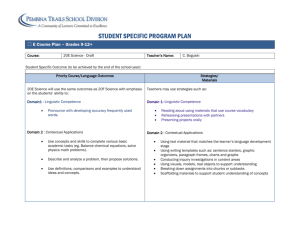Cultural Competence Research
advertisement

Cultural Competence Friday September 4, 2015: 9:00am – 10:00am University of Kansas (2014), The Community Tool Box: 1. "Cultural knowledge" means that you know about some cultural characteristics, history, values, beliefs, and behaviors of another ethnic or cultural group. 2. "Cultural awareness" is the next stage of understanding other groups -- being open to the idea of changing cultural attitudes. 3. "Cultural sensitivity" is knowing that differences exist between cultures, but not assigning values to the differences (better or worse, right or wrong). Clashes on this point can easily occur, especially if a custom or belief in question goes against the idea of multiculturalism. Internal conflict (intrapersonal, interpersonal, and organizational) is likely to occur at times over this issue. Conflict won't always be easy to manage, but it can be made easier if everyone is mindful of the organizational goals. 4. "Cultural competence" brings together the previous stages -- and adds operational effectiveness. A culturally competent organization has the capacity to bring into its system many different behaviors, attitudes, and policies and work effectively in cross-cultural settings to produce better outcomes. ______________________________________________________________________________________________ Weaver’s (1986) Iceberg Concept of Culture: ______________________________________________________________________________________________ Spitzberg’s (2012) Axioms of Intercultural Communication Competence: Some items to note: 1. Competence is evaluated most universally in terms of “quality”. Competence is social behavior that is perceived as relatively appropriate and effective for a given context. 2. Competence is a judgment. Competence is not inherent to a behavior, but in a person’s interpretation of the behavior. 3. Judgment of competence is subject to systemic conditions. Competence in MiraCosta culture may be perceived differently in another culture. 4. People interact, not cultures. References Community Tool Box (2014). Chapter 27, Section 7: Building Culturally Competent Organizations. University of Kansas, Retrieved from http://ctb.ku.edu/en/table-ofcontents/culture/cultural-competence/culturally-competent-organizations/main Spitzberg, B. (2012). Axioms for a theory of intercultural communication competence. In L. Samovar, (Ed.). Intercultural communication: A reader. Boston MA: Wadsworth. Weaver, Gary R. (1986). Understanding and coping with cross cultural adjustment Stress. In R.M. Paige (Ed.). Crosscultural orientation: New conceptualizations and applications. Lanham MD: University Press of America





